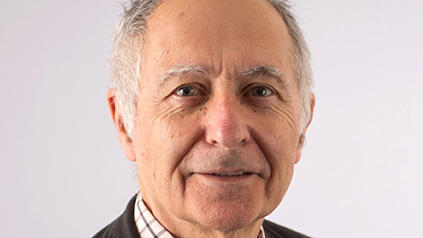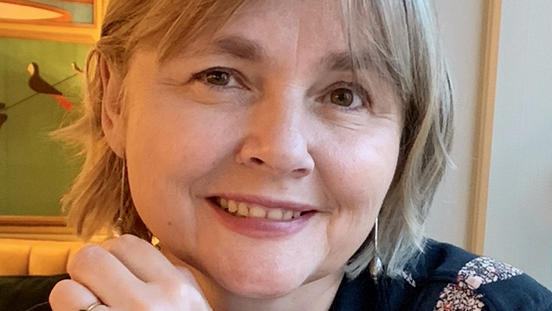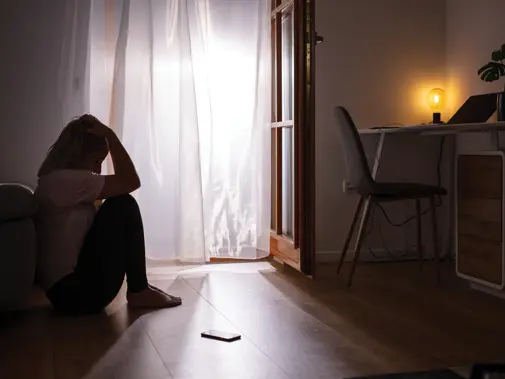Burnout among doctors is no new phenomenon.
Since the onset of austerity, the NHS has been stretched further and further by relentless cuts and its vulnerabilities have been exposed since COVID. A record backlog appears daunting, with levels of stress so high and doctors leaving the profession in their droves.
One service that has been expanding is a psychotherapeutic consultation service run by doctors for doctors. Confidential, self-referral, non-profit DocHealth supports doctors with issues ranging from burnout, depression and anxiety to relationship difficulties, clinical incident and exam stress and trauma and bereavement.
The growth of the support network – which has seen referrals double since 2019 – is not only a show of solidarity among doctors, but a warning sign for the mental wellbeing of the profession.
A total of 411 doctors used the service in 2021, up from 232 in 2019. The number of consultants has doubled, from 6 to 12. And demand continues to rise, with two more consultants starting in September.
Stress excess
Founder Tony Garelick, a consultant psychiatrist in psychotherapy, says: ‘The frustration is particularly difficult at the moment. There’s an awful lot of stress.
‘People are exhausted and demoralised. There’s a lot of anger being voiced by the population because of waiting lists. Medicine is much more difficult now. The support systems haven’t been there. Morale is awful.’
Contributing factors are myriad, he explains. ‘The scale of the problems has changed.’
In an organisational sense: ‘Rotas are already difficult, then people test positive and have to quarantine.’
Camaraderie has also been hit. Reasons vary but include clinical staff ‘having to look at name badges to work out who they are working with’.
People are exhausted and demoralised. There’s a lot of anger being voiced by the population because of waiting listsDr Garelick
Doctors had to deliver bad news remotely when relatives were unable to visit family members. ‘People found that really upsetting. Doctors were shouted at down the phone when people were exhausted and upset.’
They are unable to vent. ‘Isolation meant doctors were not able to sit down for a coffee with colleagues to talk about things. Support systems, even the indirect ones, went.’
 GARELICK: Threshold for coping has been eroded
GARELICK: Threshold for coping has been eroded
And stresses manifest themselves at home, too. ‘If a doctor is working while exposed to COVID, they might not sleep at home, or sleep in a separate room, which puts enormous stress on the family.’
Stress can translate into bullying. That could be from managers, under pressure themselves, suggesting doctors aren’t seeing enough patients or tackling waiting lists fast enough.
Resilience wanes
Arguments boil over when there are disagreements over early discharges, for example, with doctors ultimately accountable if that turns out to be the wrong decision.
‘It pushes more risk on to clinical staff,’ says Dr Garelick. ‘And if you’re blamed when it’s not within your control, it can feel very unfair.’
All this combined means doctors’ thresholds for coping have been ‘eroded’ since COVID, says Dr Garelick. ‘Before, a doctor might have been stressed and working hard, then there’s a bereavement in the family, and they keep going,’ he says. ‘But now, because they are already just about managing, if there’s a bereavement they are less resilient.
‘Now, it is an expectation that work-life balance has gone,’ Dr Garelick explains. He says more doctors are dropping sessions, if they can afford to, or looking to retire earlier than planned.
Maria Eyres, who took over from Dr Garelick as clinical director in April, makes a similar assessment.
‘Circumstances are different to before the pandemic. Things became more pressured,’ she says.
There is now this pressure of responsibility for the much-longer waiting listsDr Eyres
Dr Eyres points to the proportion of senior doctors seeking help having risen even as overall numbers of self-referrals have grown. In the first four months of 2019, 32% of patients were senior doctors. In the first four months of this year, 44% were.
She puts this down to ‘different pressures’ on them than junior doctors, being careful to say all groups are under added strain. Why the rise in senior doctors approaching DocHealth?
‘They have spent longer in the system that has been under that pressure for a number of years,’ Dr Eyres suggests.
‘Consultants and GP partners have overall responsibility for running the system, which in the pandemic called for new ways of working and came completely out of the blue. They have carried the burden, for staffing, conditions and patient safety while many people have been off sick and locum doctors are becoming more difficult to find.’
 EYRES: Senior doctors increasingly seeking help
EYRES: Senior doctors increasingly seeking help
Juniors are also burnt out, but in a different way. Dr Eyres reports many having to cancel their DocHealth sessions at short notice as ‘they are asked to cover unexpected vacant shifts in duty rotas more frequently’ and with the whole system more stretched foundation year doctors in particular are reporting less support from seniors.
Dr Eyres also notes ‘a lot’ of GPs seeing DocHealth consultants, and the number looking for the exit door now ‘telling’.
‘Patients have started complaining more,’ she explains. ‘There is now this pressure of responsibility for the much-longer waiting lists. That creates stress because doctors tend to be very diligent and responsible people and if they’re working in a system that doesn’t expand according to need that’s very stressful.
‘At the beginning of the pandemic people were really pushing themselves, and with time we can’t keep going over and above. There’s a point where if you continue you damage yourself.’
Historically, doctors go into work even if they are ill and should be at homeDr Garelick
Another trend is the rise in male self-referrals, from 28% in 2019, to 31% in 2021. Dr Eyres says male doctors, traditionally, have been more likely to ‘suffer in silence’ but believes the pandemic has reduced the stigma among men for presenting for psychotherapy services. ‘I hope this trend will continue,’ she adds.
Especially before COVID, there was a major problem with presenteeism, Dr Garelick says.
‘Historically, doctors go into work even if they are ill and should be at home. Because of the stigma, and doctors feeling as though they’re failing – or that it’s a weakness to seek help for anything to do with stress, they wouldn’t refer themselves.’
This is one of the reasons DocHealth does not triage patients. While the NHS uses triage to combat excess demand, the opposite is the case among burnt-out doctors. As Dr Garelick puts it: ‘We’ve never seen someone who wasn’t worthy. If a doctor rings up, there’s always good reason.’
Online experiment
All of DocHealth’s medical psychotherapists – who work part-time around other roles – are consultants, and ‘crucial’ continuity of care is offered as patients always see the same consultant. The service is also stand-alone – no details are shared with the doctors’ own GPs.
Treatment is therapeutic, although doctors will be asked if they are on medication which is then taken on board.
Dr Eyres says the service has ‘grown organically’ but ‘come of age’ during the pandemic. Plans for its future are under discussion. For instance: before COVID, consultations were entirely face to face. Currently, they are entirely online.
‘At the beginning of the pandemic we were sceptical and curious about how online would work,’ recalls Dr Eyres. ‘We’ve learned an awful lot.’
The biggest advantage is access, she says, noting it would be ‘impossible’ for patients in Scotland, Wales, Northern Ireland or the Channel Islands to access the London-based service in person.
Comments on online consultations in DocHealth’s latest board report are ‘predominantly very positive’, even from doctors in London and the south-east. ‘Doctors work shifts,’ Dr Eyres points out. ‘It’s not easy to make time.’
Circumstances are different to before the pandemic. Things became more pressuredDr Eyres
She adds: ‘We can react much better to demands, be more flexible, squeeze in extra patients at short notice. And doctors are increasingly seeing their patients online, so they are used to it.’
The likelihood is the service will ‘move with the times’ and become hybrid, with in-person consultations available if requested, but this decision is yet to be made.
Dr Garelick hopes the service will reduce as that would show an improvement in doctors’ mental wellbeing. But he believes that will take ‘a long time’ because ‘the NHS is on its knees’.
‘The problem is that health is an ecosystem,’ he says. ‘It’s not just doctors and hospitals, it’s care homes, support workers. The care home sector is deteriorating, and it all backs up into A&E and primary care. To get anything done takes ages. Patients tend to take it out on who they see, which is usually the doctor. The situation is very difficult.’
And as a consultant psychiatrist treating fellow doctors every week, he would know.

